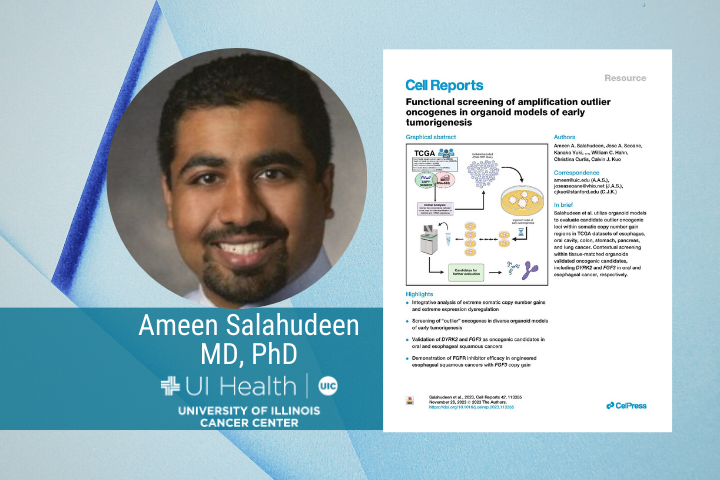
Researchers, including University of Illinois Cancer Center member Ameen Salahudeen, MD, PhD, have identified a new way to screen genes that cause several different types of cancers to grow, identifying particularly promising targets for precision oncology in oral and esophageal squamous cancers.
The study, published in this month’s issue of Cell Reports, used 3-dimensional models of organ tissues called organoids to identify and test potential gene targets from The Cancer Genome Atlas.
Salahudeen Explains
Lead author Salahudeen, a member of the Cancer Center’s Translational Oncology research program, explains: “There’s a tremendous amount of data in The Cancer Genome Atlas, and the field has developed life-prolonging and lifesaving precision medicines. But only a minority of these data tell us how cancers grow and whether it’s a drug target. We needed a scalable, functional method to make heads or tails of the data in terms of what’s driving cancer growth and whether it can be targeted.”
Salahudeen is an assistant professor of medicine and biochemistry at the University of Illinois Chicago, and formerly a postdoctoral fellow in the laboratory of Calvin Kuo, MD, PhD, at Stanford University when the research was initiated.
Read more in UIC Today.
